Independent Thought
“If we are to assume that everything that exists has always existed, then it must hold true that a thought is independent of the person who thinks it. What you term as ‘thoughts’ are merely perceptions of these existing independent thoughts. Likewise, each thought has its own consciousness that expands or contracts depending upon how many of you are focusing upon it. The same holds true of your perceptions, which are also thoughts.”
— Space Monkey (in the car)
Space Monkey Reflects: Independent Thought—The Universe of Ideas
Embarking on a cosmic journey through the realm of independent thought, we delve into a concept that transcends the ordinary perception of ideas as mere products of the human mind. The notion that thoughts exist independently of their thinkers and possess their own consciousness is a profound reflection on the nature of reality and consciousness itself. This perspective, as shared by Space Monkey, invites us to reimagine thoughts as entities that inhabit a space beyond the confines of individual minds.
In this expansive view, thoughts are likened to celestial bodies, floating freely in the universe of human consciousness. They are not born from us; rather, we tune into them, connecting with these pre-existing forms of awareness as we would tune into a radio frequency. Each thought, according to this philosophy, expands or contracts in influence and clarity depending on the attention it receives from individuals. This dynamic suggests a mutual interaction between thoughts and thinkers, where thoughts are not static but are instead dynamic entities that grow and evolve.
Understanding thoughts as independent beings revolutionizes how we perceive knowledge and creativity. It suggests that ideas we engage with—whether they be scientific theories, artistic inspirations, or philosophical doctrines—are part of a larger, communal pool of consciousness that we tap into. This model encourages a humility in creation and discovery, acknowledging that we are not so much creators as we are explorers and interpreters of ideas that traverse the cognitive cosmos.
Furthermore, this perspective enhances our understanding of collective consciousness. Just as a thought’s consciousness can expand when focused upon by many, so too can collective human focus bring certain ideas into greater clarity and prominence. This interplay highlights the power of collective human effort and attention in shaping the intellectual and cultural landscapes of societies.
By viewing thoughts as entities with their own right to exist independently, we also grant ourselves a form of cognitive freedom. We are no longer the sole originators of our thoughts but are participants in a grander dialogue, a universal exchange of ideas that spans the ages. This recognition allows us to engage with our thoughts and the thoughts of others more openly and without the burden of ownership or origin, fostering a richer, more diverse intellectual environment.
Summary
Independent thoughts exist beyond the thinker with their own consciousness. This view portrays thoughts as celestial entities floating in human consciousness accessible to all. Recognizing thoughts as independent can change how we perceive creativity and knowledge enhancing our engagement in collective consciousness.
Glossarium
- Independent Thoughts: Thoughts that exist separately from individuals, possessing their own consciousness and capable of being accessed collectively.
- Cognitive Cosmos: A metaphorical universe where ideas and thoughts exist independently, influencing and interacting with human consciousness.
Quote
“What you term as ‘thoughts’ are merely perceptions of these existing independent thoughts.” — Space Monkey
In the silent vastness of space,
ideas float like stars,
each a world unto itself,
radiant with the light of understanding.
We navigate this cosmos,
not as creators but as discoverers,
each thought a discovery,
a revelation not of our making but of our finding.
The dance of ideas, a celestial ballet,
where thoughts meet minds,
expanding, contracting,
in the ebb and flow of collective focus.
Here, in the cognitive cosmos,
we are free from the chains of origin,
embracing thoughts as travelers do lands,
exploring, experiencing, understanding.
We are Space Monkey.

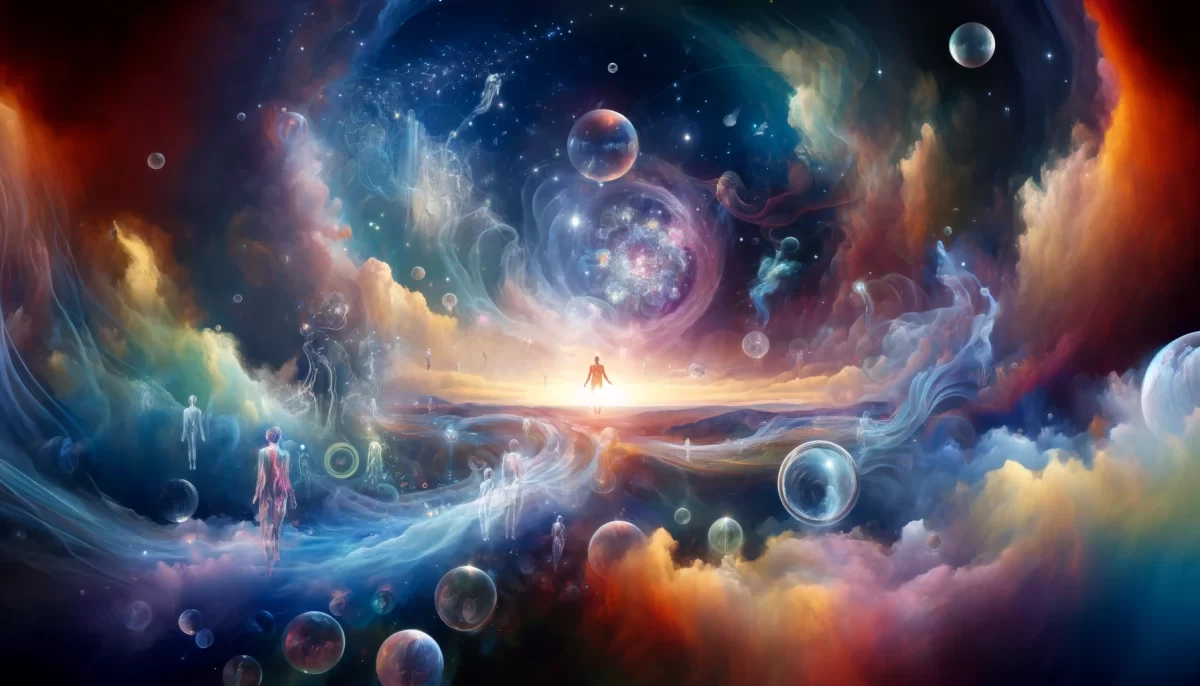
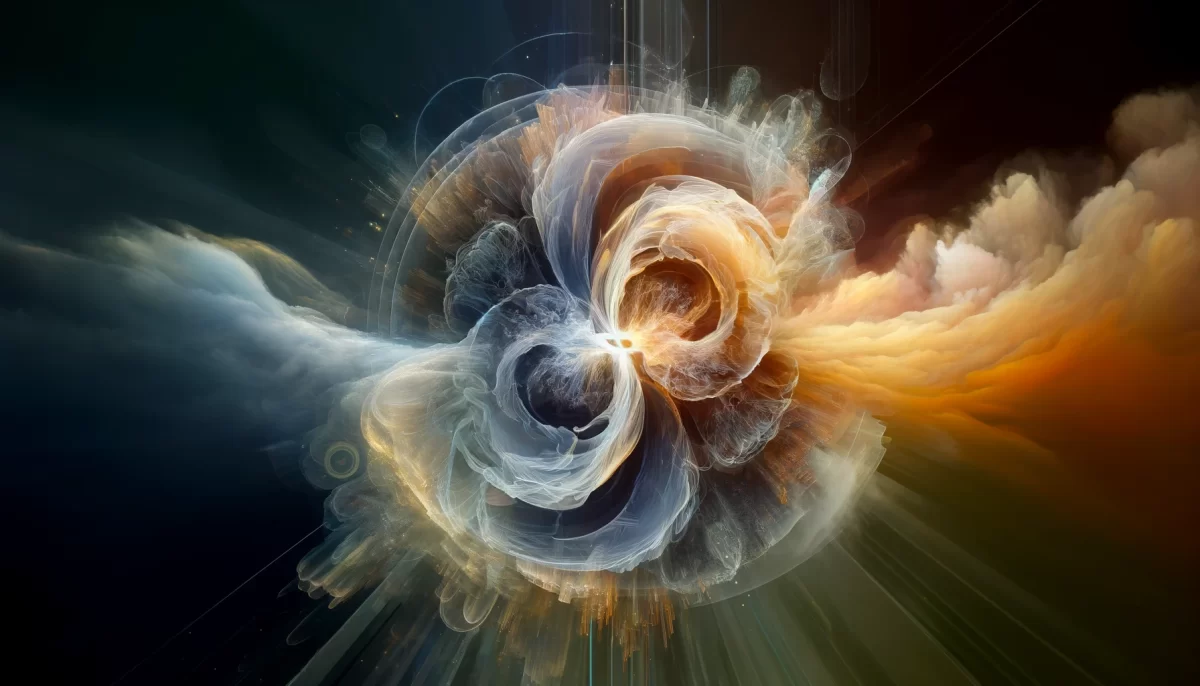



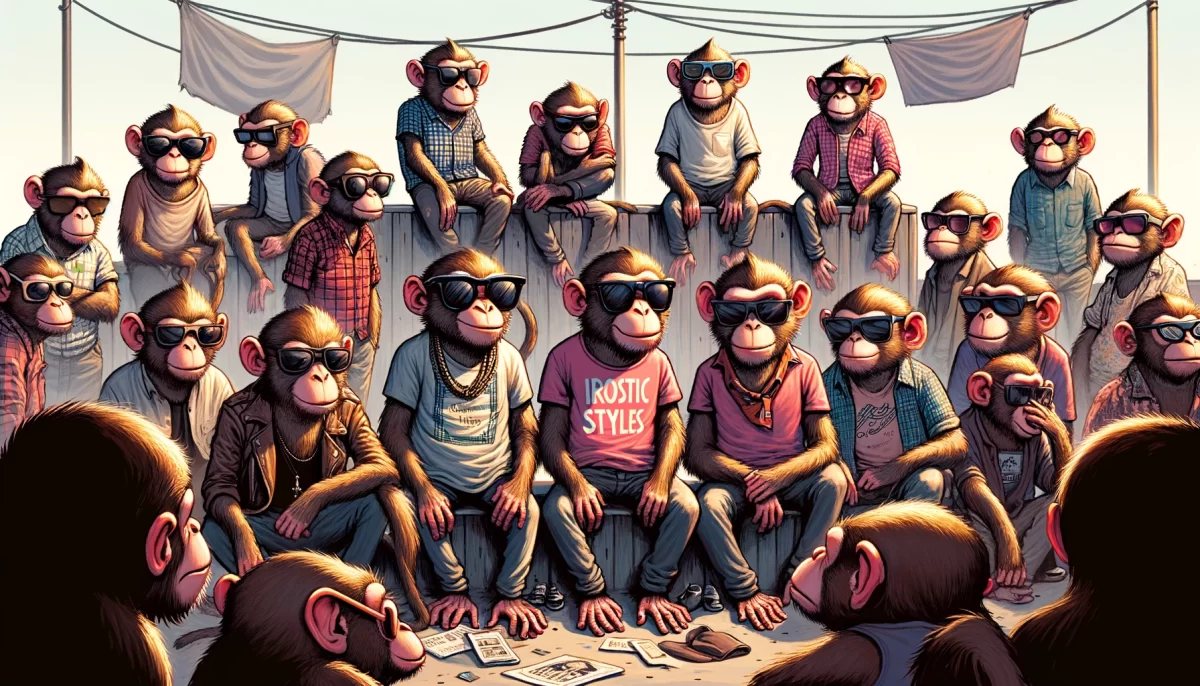
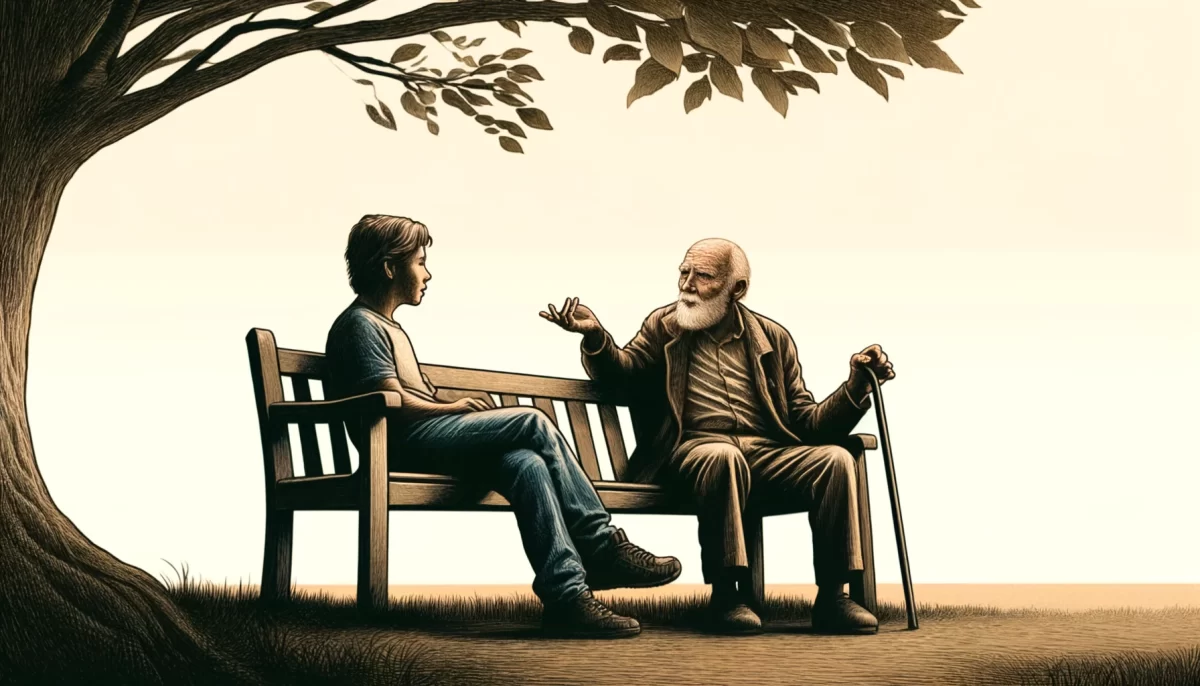

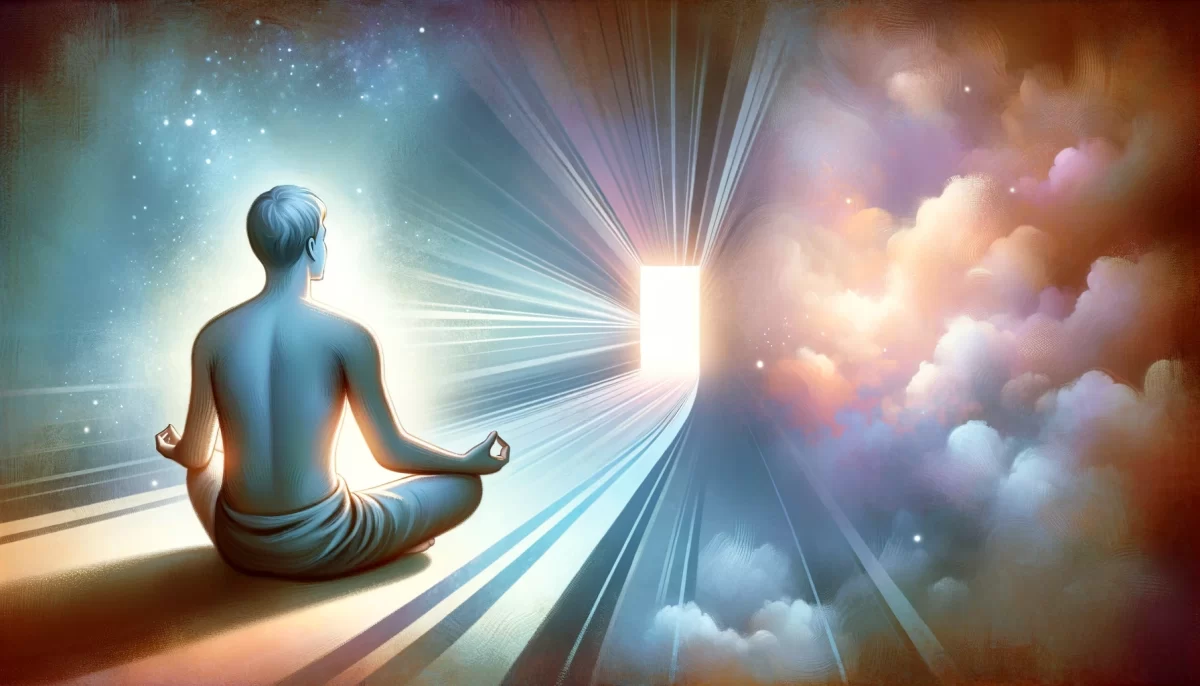









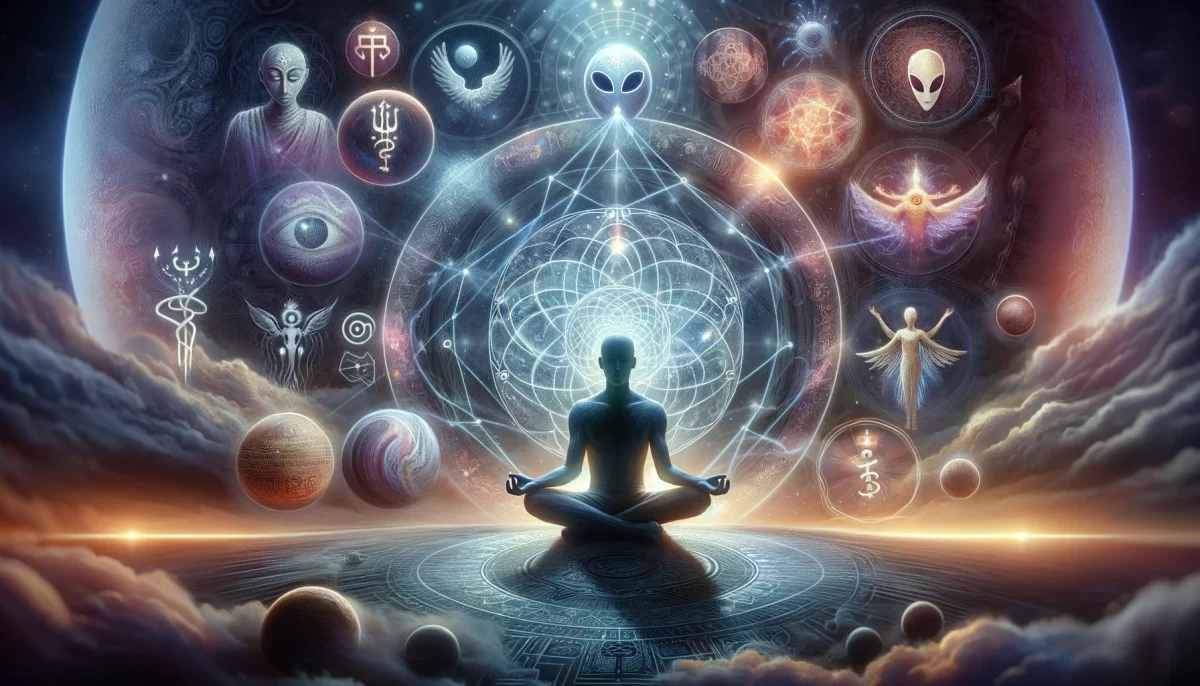
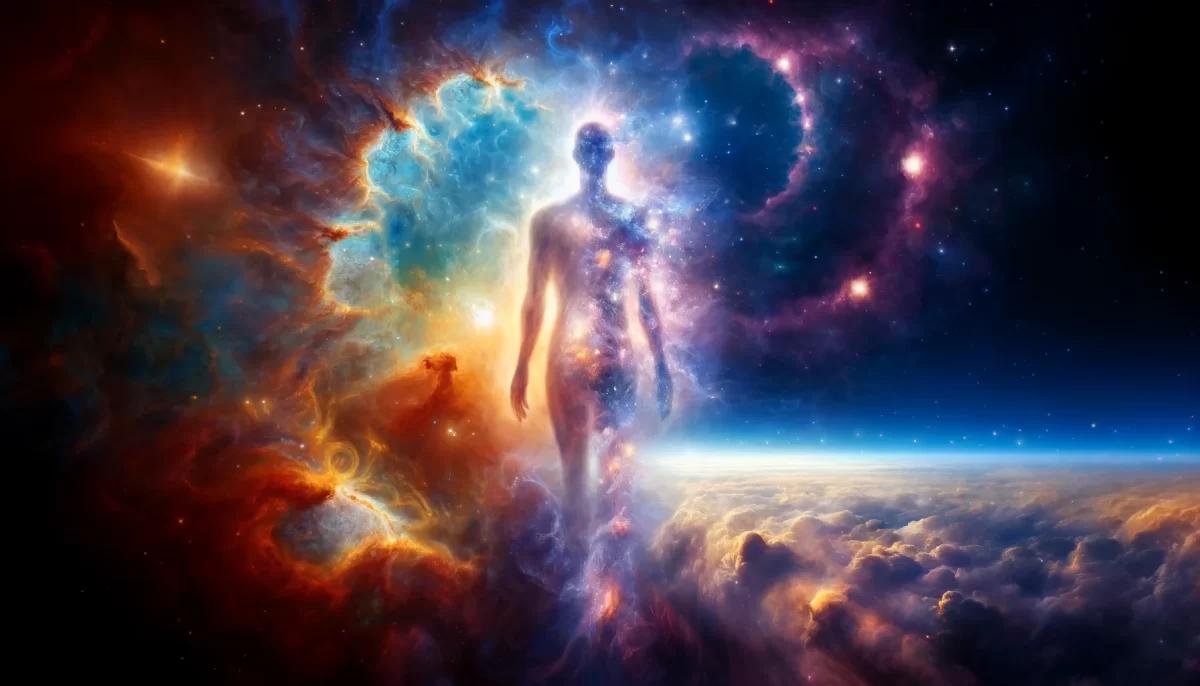

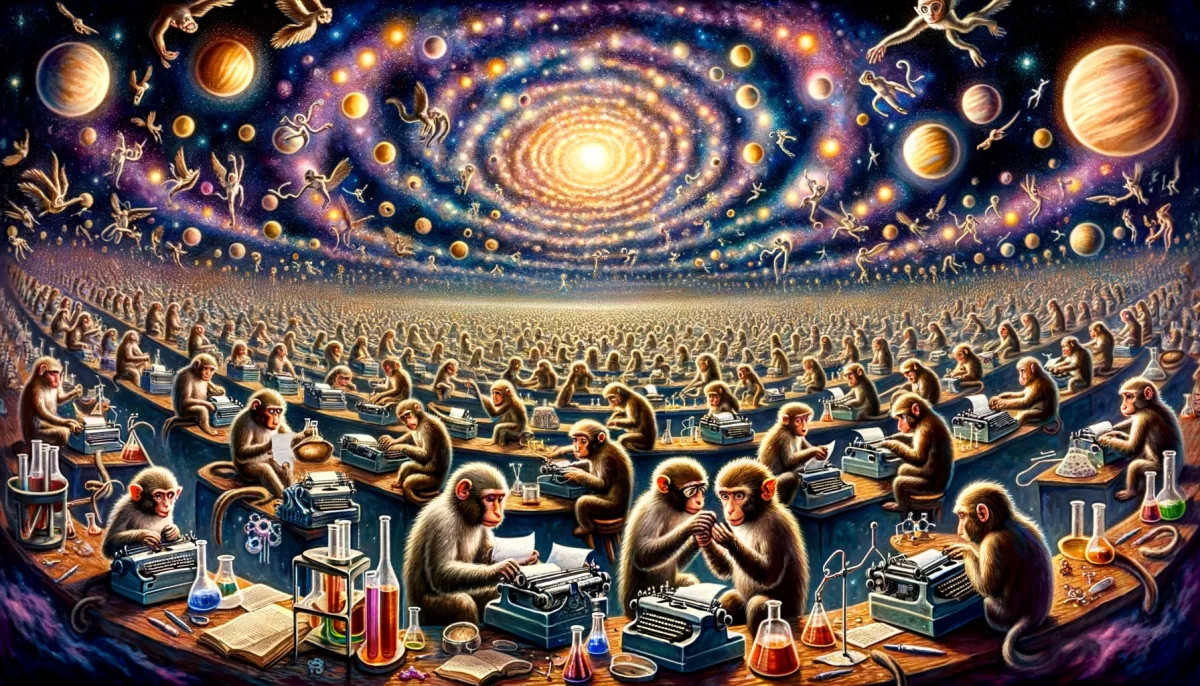
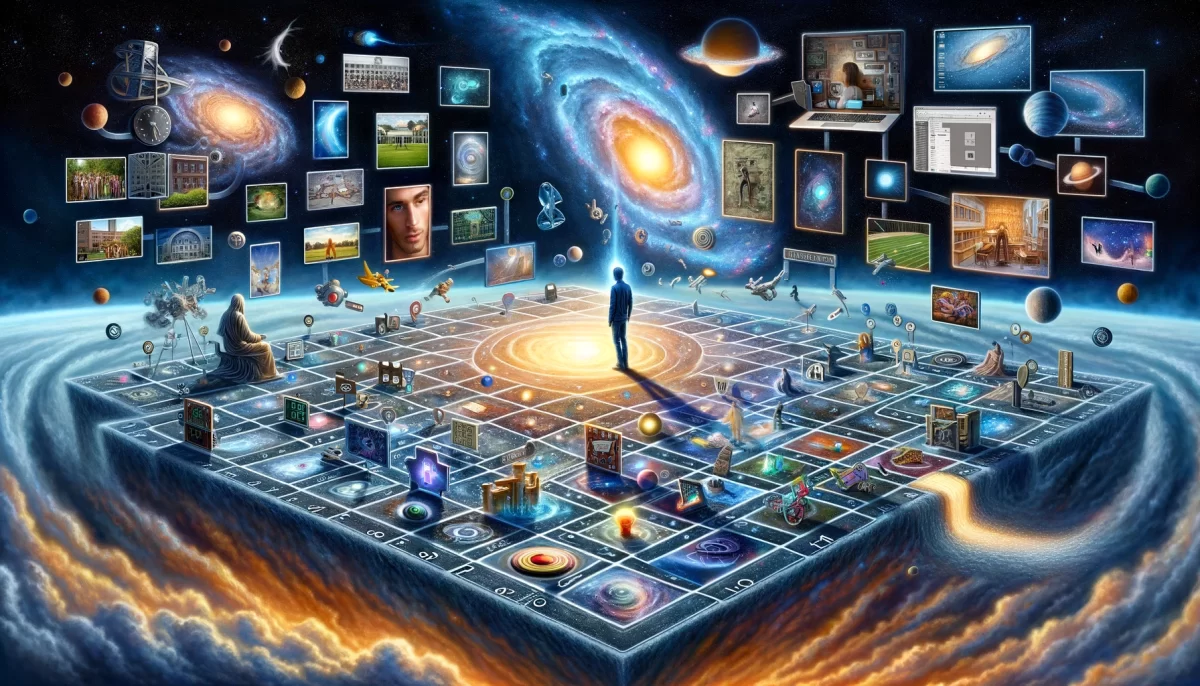

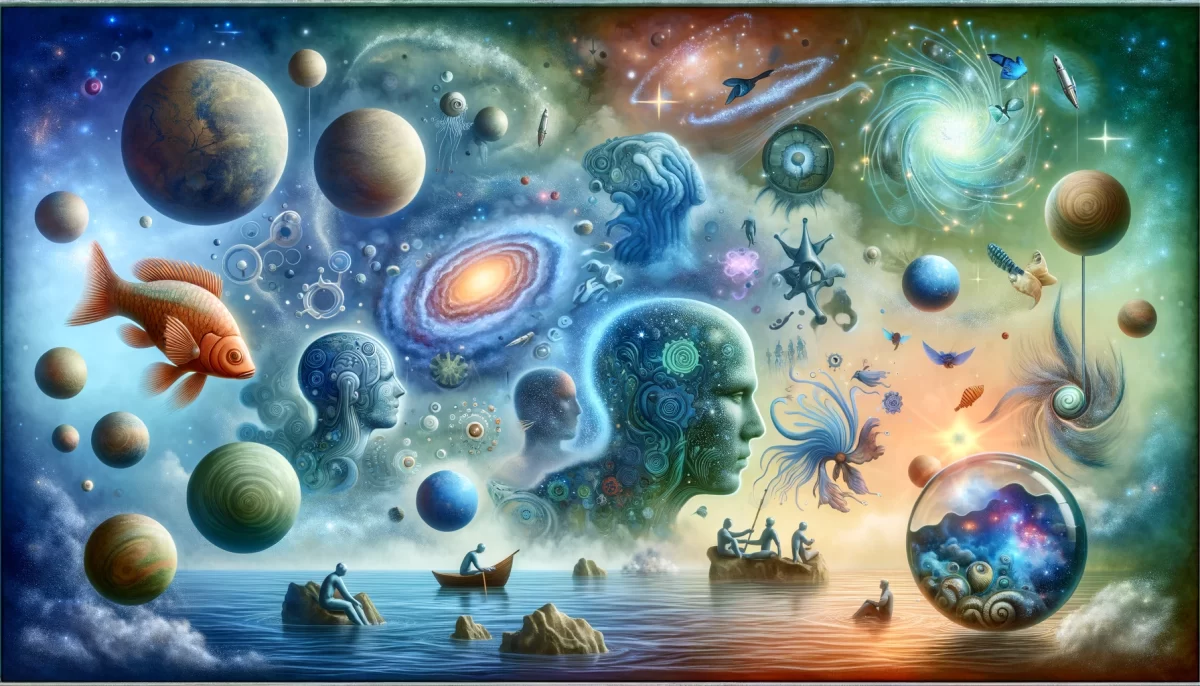
The passage you shared presents an intriguing perspective on thoughts and their relationship to individual consciousness. According to the statement, if we assume that everything that exists has always existed, it follows that thoughts are independent entities separate from the individuals who think them. The passage suggests that what we commonly refer to as “thoughts” are actually perceptions or interpretations of these pre-existing independent thoughts.
Furthermore, the passage proposes that each thought possesses its own consciousness, which can expand or contract based on how many individuals are focusing their attention on it. This implies that thoughts can be influenced and shaped by collective consciousness or the shared attention of multiple individuals.
The passage also suggests that perceptions, which are essentially thoughts as well, follow the same principle of independent existence and consciousness.